
Dixie Rye—The Rye Baker

I had high hopes for this recipe from theryebaker.com. I really enjoy the flavors of rye and cornmeal and I liked the fact that the recipe wasn’t sweet like a Boston Brown Bread. Unfortunately, the recipe didn’t quite work out for me.
It begins with an overnight sponge of fine rye meal (Bay State Milling) and instant dry yeast.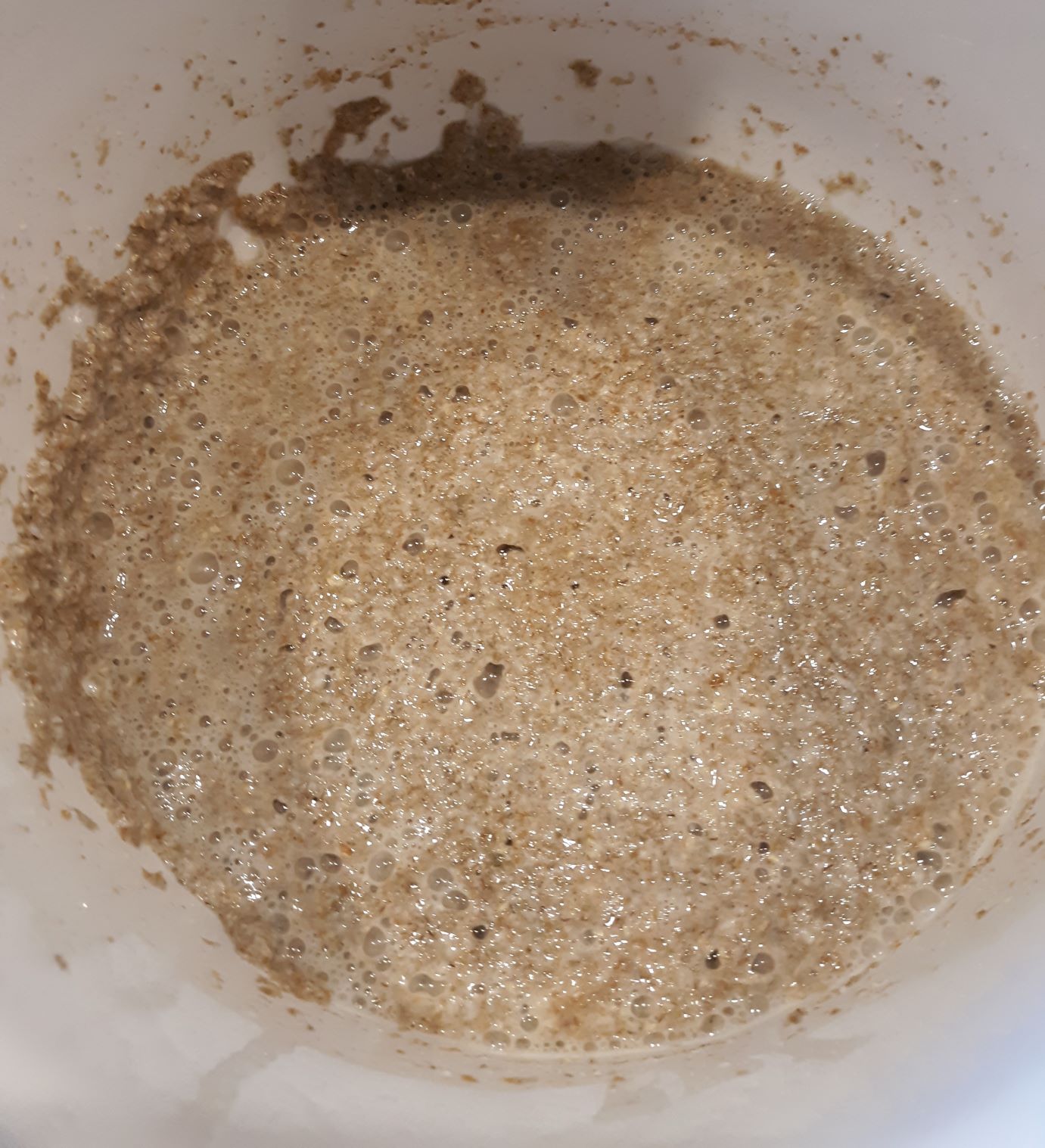
The next day, the sponge is combined with whole rye flour (Country Life Natural Foods), scalded cornmeal (Bob’s Red Mill), and salt.
Scald: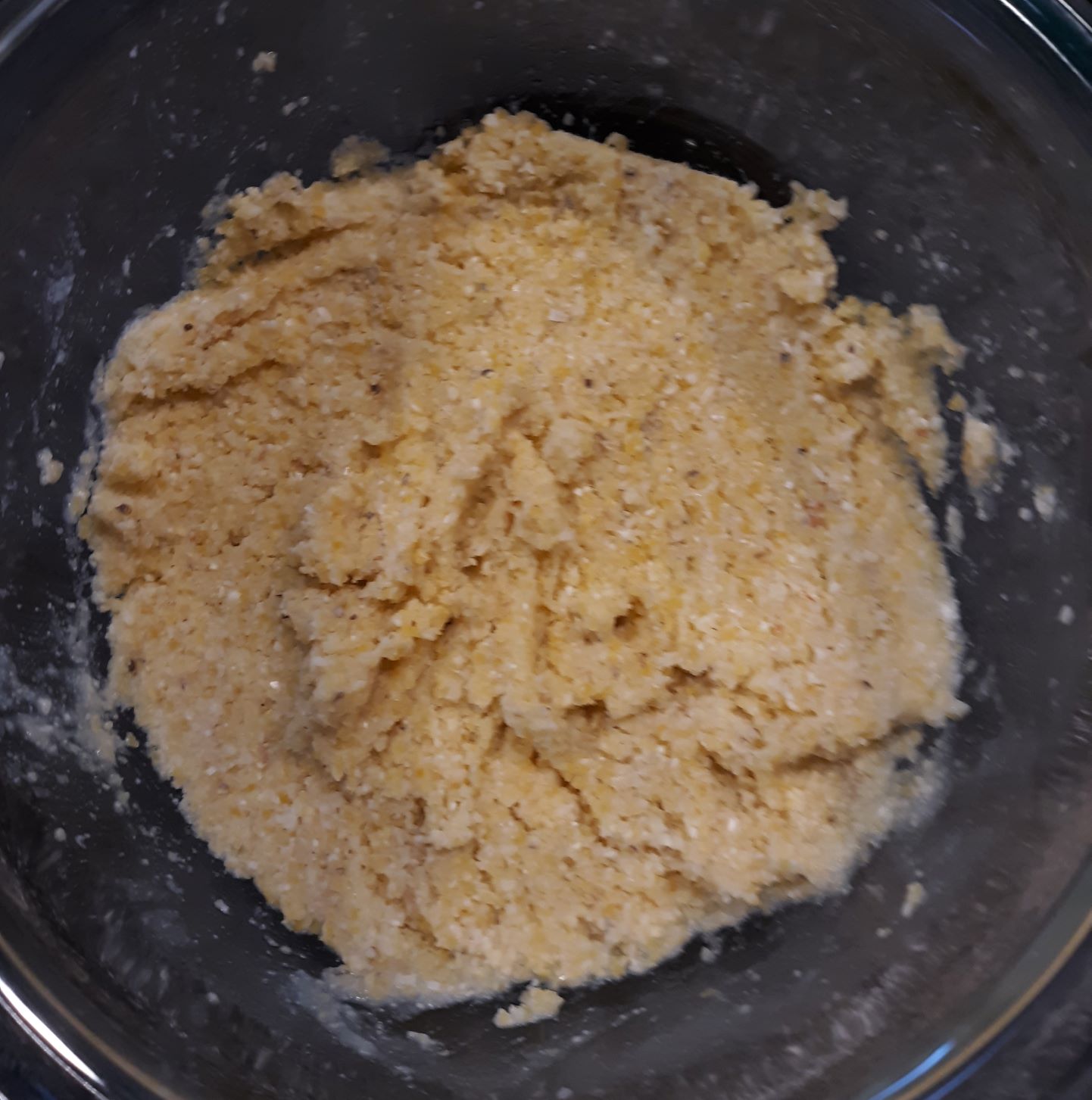
Panned: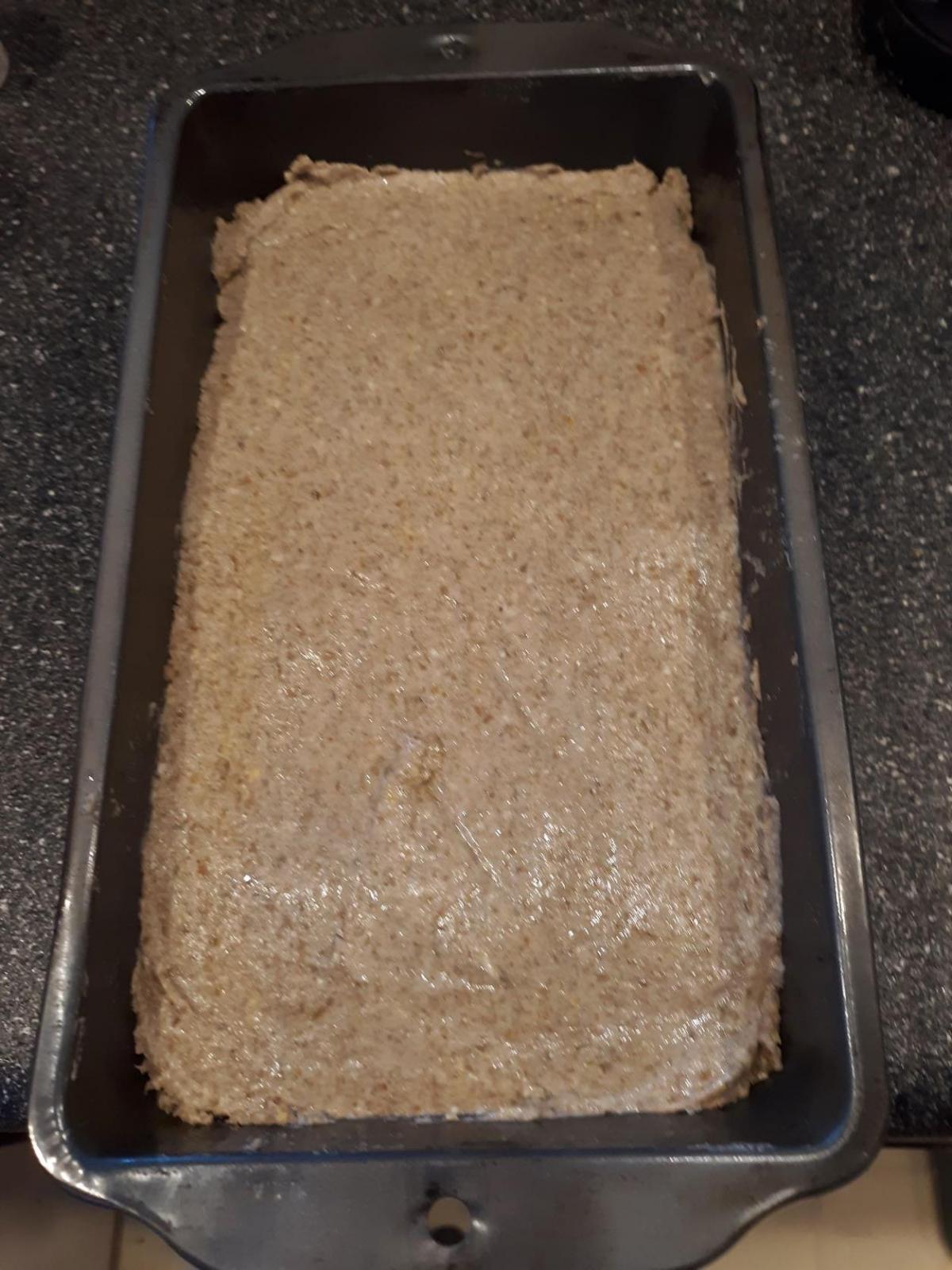
The dough proofs for about 1 hour and baked for 10 minutes at 230 °C (450 °F) and 40 minutes at 175 °C (350 °F).

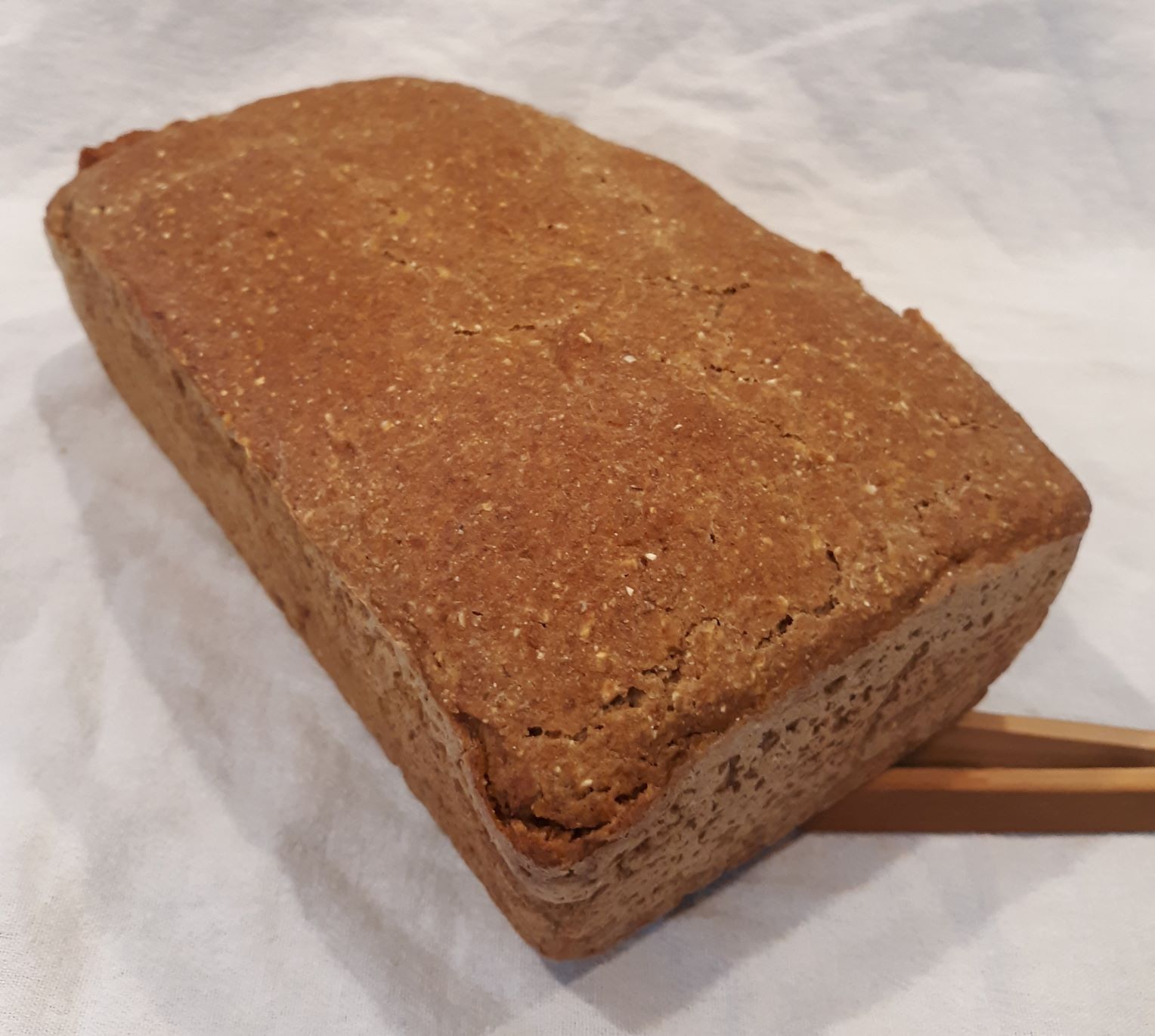
I waited a day to cut the bread but I found the crumb to be very gummy.
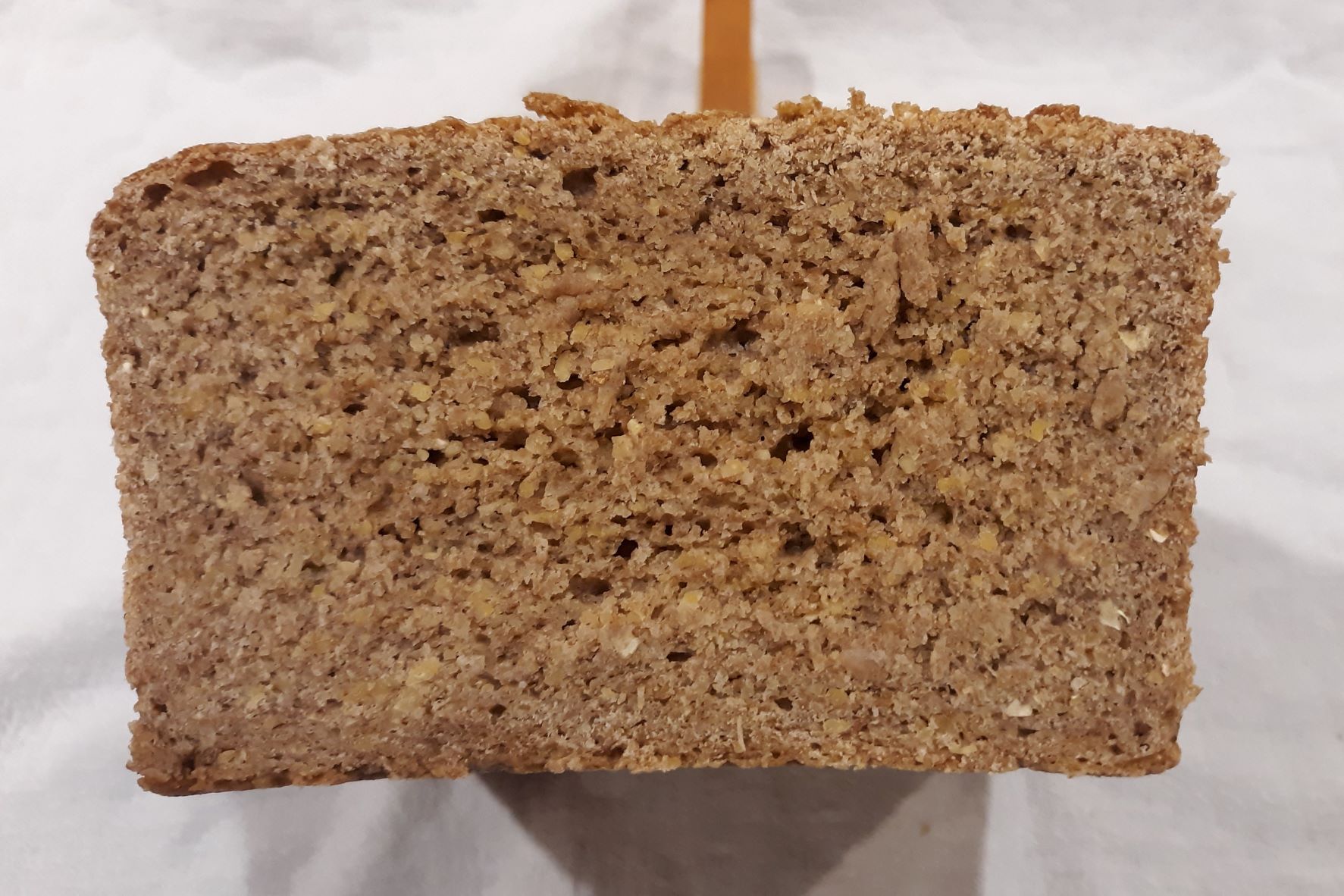
I may have underbaked it or there was starch attack. It was probably the former even though the temperature was ≈93 °C. I tried toasting a couple of slices, but the flavor was bland. Several slices were dried to use as old bread (altus), although the cornmeal could be odd in a German rye.


Comments
That's a bummer. Consider saving all of it though. I've quite enjoyed using altus in my fluffy altus IDY bread. Adds colour and flavour in a subtle, mellow way that is quite nice... particularly when toasted.
I just sliced and diced my fail and threw it in the freezer. I add it to my poolish.
The below bread is just a yeast bread with whole rye altus + atta poolish, an atta tangzhong, and the rest AP.
0619DD20-E871-4FE1-BEAE-A5B5FB919CBF.jpeg
normally requires sourdough.
Yes, I was suspicious of the lack of sourdough, but there is an overnight sponge of rye meal with Instant dry yeast. I forgot to measure the pH of the sponge to see how acidic it was. But it could have also been underbaked. Couldn't really tell from the thump test.